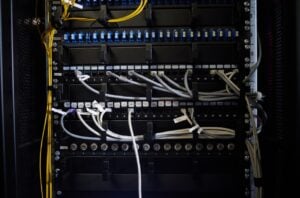Your Actions As a Parent Have Lasting Impact On Your Children

Image by Luke Pennystan
In the early days of Sean “Diddy” Combs’ federal trial, the courtroom was heavy with disturbing testimony. Graphic accounts of abuse, control, and sexual misconduct were shared aloud for the world—and Diddy’s own children—to hear. It wasn’t just a celebrity scandal playing out in public; it was a profoundly personal trauma unfolding in real time for the young people forced to bear witness.
As Daniel Phillip, a male escort who alleges he was abused by Diddy, took the stand and described explicit sexual encounters involving the music mogul, two of Diddy’s daughters became so visibly distressed that they had to excuse themselves from the courtroom. Their reaction wasn’t just emotional—it was human. And it speaks volumes about the hidden collateral damage of a parent’s actions.
“Children don’t just witness their parents’ behavior, they internalize it,” says Linsey Lunny, CEO of Hidden Strength, a free mental health app for young people aged 13–24. The Diddy case is serving as a painful reminder of that. The actions of the adults around us—especially our parents—shape the way we see ourselves, relationships, and the world. When love is tangled with fear, control, or instability, it teaches a child that chaos is normal and that their needs come second,”
Too often, society separates a parent’s public behavior from their private role at home. But children don’t make that distinction. What a parent does—especially when it involves violence, betrayal, or public shame—becomes part of the child’s emotional blueprint. They’re not just watching the fall of a public figure; they’re living through the unraveling of someone who was supposed to represent safety and love.
The courtroom is not the only place where children are exposed to the repercussions of adult behavior. News cycles, social media, and online commentary mean that these stories follow them far beyond the courthouse steps. Every headline becomes another blow to their sense of self, another reminder that the world now sees their family through a distorted lens. The ripple effect can be devastating.
“Every time Diddy’s children have to hear what their father did, they are being immersed in a world of shame,” continues Lunny. “That kind of environment doesn’t just disappear with age. Suddenly, their sense of safety, self-worth, and how they show up in every relationship is skewed. We have to stop underestimating how deeply a parent’s actions can echo in a child’s mental health for years to come.”
The impact can manifest in many ways: chronic anxiety, trust issues, depression, and an inability to form healthy boundaries in relationships. Children may feel torn between love and disgust, loyalty and disillusionment. They may internalize the chaos as something they must manage or fix, carrying guilt for something that was never their fault to begin with.
And for those watching from the outside, the Diddy trial is not just a story about crime and consequence. It’s a reminder of the emotional fallout that children are often left to navigate alone. The need for mental health support in these situations isn’t a luxury—it’s a necessity.
Recognizing the long-term impact of parental behavior is a critical step toward creating better outcomes for young people. Children don’t need perfect parents—but they do need accountability, stability, and honesty. When those are missing, the emotional wounds run deep.
As the trial continues, it’s important to shift some of the focus toward the quiet, lasting effects on Diddy’s children—and children in similar situations everywhere. Because behind the headlines are young people grappling with confusion, grief, and identity. They deserve support. They deserve protection. And they deserve a future that isn’t defined by the mistakes of those who were meant to protect them.








